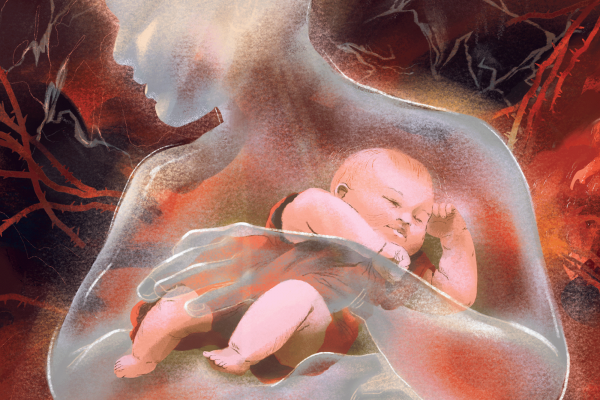I'LL NEVER FORGET the day my first son was born. Joshua was more than a week late, so my wife’s doctor wanted to induce labor. After a long day of waiting, the nurses convinced me to get a bite to eat because it was likely to be an even longer night. Minutes later, I got a frantic call that my wife, Sharee, was undergoing an emergency cesarean section because Joshua’s heart rate had suddenly plummeted, and his umbilical cord was wrapped around his throat. That day marked the beginning of my journey as a father, the most rewarding and demanding experience of my life. Joshua immediately became the center of our world, as though a huge part of my own heart were living and breathing outside of myself.
The love I feel for my sons is the closest I have felt to God’s unconditional love for everyone. I knew instinctively from the moment I first held my son in my arms that I would do everything possible to ensure that this tiny, fragile person, who was completely dependent on our care, was protected, loved, and able to thrive.
I often think about how lucky we are. Things could have been so much harder for us and for our boys if circumstances over which we have almost no control were different. What if we were bringing our son into the world while experiencing poverty or homelessness? What if Sharee and I had to make the difficult choice to flee violence or persecution to give our infant son a better chance of survival? What if we had to provide for our baby boy amid a dangerous journey that took him far away from the land of his birth, with no assurance that we’d ever be able to return? What if our son’s earliest years were marred by malnutrition or childhood traumas (what experts call “adverse childhood experiences”), which can sabotage a child’s future because they impair physical and cognitive development?
These thoughts fill my mind and spirit as we enter the liturgical season of Advent. It is profoundly significant that Jesus was born not in a secure, two-income household but to an unwed teenage mother. It matters that God entered the world not in a pristine hospital room, or even the safety of a home, but in an unclean stable. It matters that God was born amid a colonized people dealing with the brutal oppression and exploitation of the Roman Empire. It matters that Jesus, as a baby, had to flee the violent puppet regime of his nation due to a decree ordering the murder of every child under the age of 2. We see evidence of God’s special concern for people who are dispossessed and marginalized in how Jesus came into the world and how God decided to live among us. The Matthew 25 injunction that we are to treat those in the most vulnerable situations as we would treat Jesus himself is even more profound when we remember Jesus’ own birth and early childhood.
From the very beginning of his life, Jesus suffered from the evil and injustice of the world — in incarnational solidarity with us. In this season of Advent, we can honor and celebrate his birth by remembering his early childhood and working tirelessly to build a world in which no child must face the debilitating hardships that Jesus faced.

Got something to say about what you're reading? We value your feedback!






